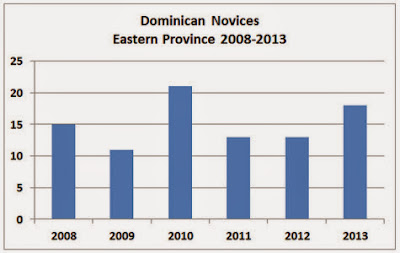Instead of working on this morning's homily. . .
A passenger jet carrying about 250 people is forced by a hurricane to crash land on a remote island.*
Most of the passengers and the flight crew safely evacuate to the beach to ride out the storm.
After a couple of days, the
hurricane abates and three members of the flight crew climb the small
mountain back to the crashed jet in an attempt to contact help with the
cockpit radio.
The crew is gone for two days.
In the meantime, another hurricane hits the island. When the three crew
members fail to return after four days, a small party of passengers
climb the mountain and discover that the storm has caused an avalanche
and killed the three crew members. The radio has been destroyed as
well.
The passenger-rescue party find
three notebooks bound together with a rubber-band and sealed in a
heavy-duty plastic bag. They take the notebooks back to the beach and
begin trying to decipher the scribbled notes. Soon, all agree that the
crew members were taking notes on a proposed rescue plan. But it is
unclear whether they themselves were planning a possible rescue
scenario, or if they were taking notes on a plan proposed via radio by
authorities on the mainland.
The notes indicated that the
stranded passengers and crew would have to undertake several arduous
tasks in order for any rescue attempt to succeed. In fact, these tasks
would not only deplete their limited food and water reserves, but also
place all of them in danger of injury and death.
Two groups quickly formed around
two possible interpretations of the three notebooks. One group, the
Rescue Realists (RR), argue that the notes themselves indicate that the
crew had been in contact with the mainland and that they should do
everything necessary to complete the tasks in order to be rescued.
The Rescue Anti-Realists (RAR)
argue that the notes indicate nothing more than a plan to be proposed by
the crew to make sure that the stranded people worked together as a
cohesive group in order to maintain civilized behavior and the hope of
rescue. Given the obvious tentative tone of the notes, the more
dangerous tasks are interpreted as merely brainstorming suggestions
rather than requirements to be met for rescue.
Since the radio had been
destroyed, there was no viable means of verifying the RR
interpretation. However, the RR camp argues that to ignore the plan
would be tantamount to suicide, so the whole group should immediately
begin the tasks so as to maximize their chances of rescue.
The RAR argue that since there
is no way of verifying the RR interpretation, it would be wiser to
ignore those tasks that directly threaten their limited resources and
focus only on those tasks that would keep the group together as a
community until they were rescued, if they were rescued.
The following are givens:
1). There is no viable, external means of verifying either interpretation.
2). Both interpretations would work to keep the group together as a community.
3). Neither interpretation
guarantees rescue, injury/death, or an unusual depletion of resources.
Though everyone agrees that the RR interpretation is more dangerous and
likely to deplete supplies more quickly.
Given all of this, which interpretative group would you join and why?
Given all of this, which interpretative group would you join and why?
*This parable is adapted
from one proposed by Paul Moser to explain the difference between
theological realism and theological anti-realism. He sees the difference as primarily one of epistemology, that is, what can we know about God and how?
____________________Follow HancAquam or Subscribe ----->
